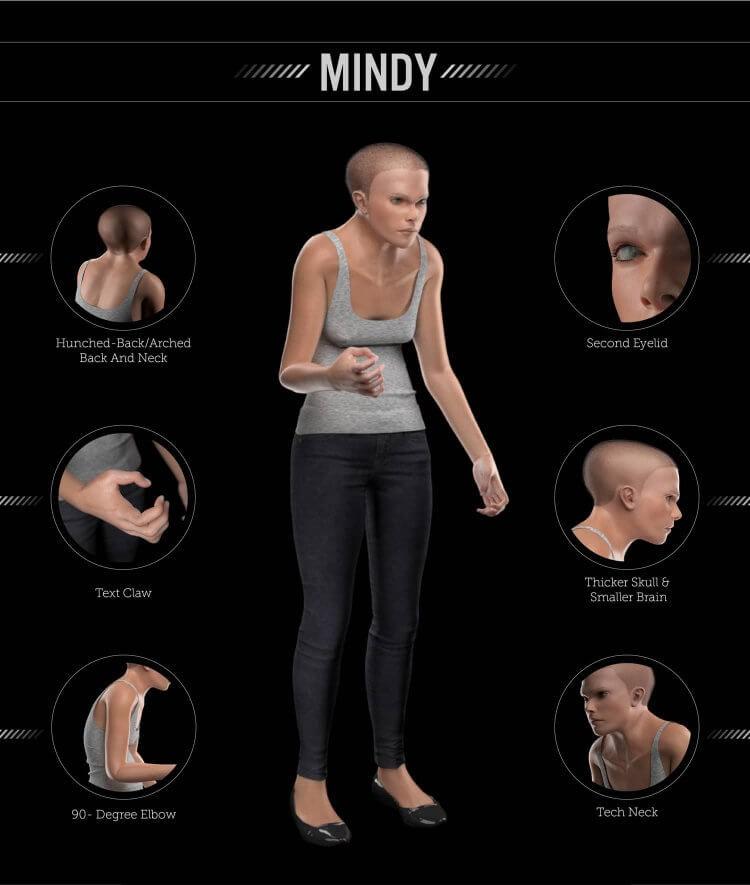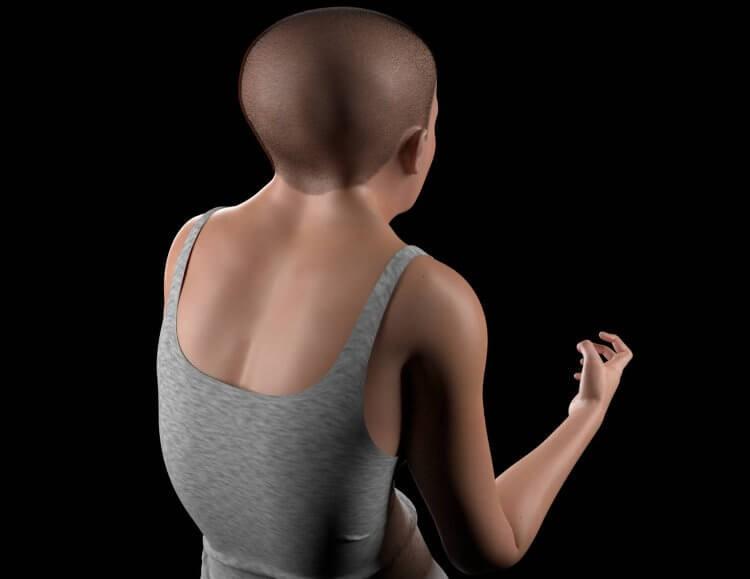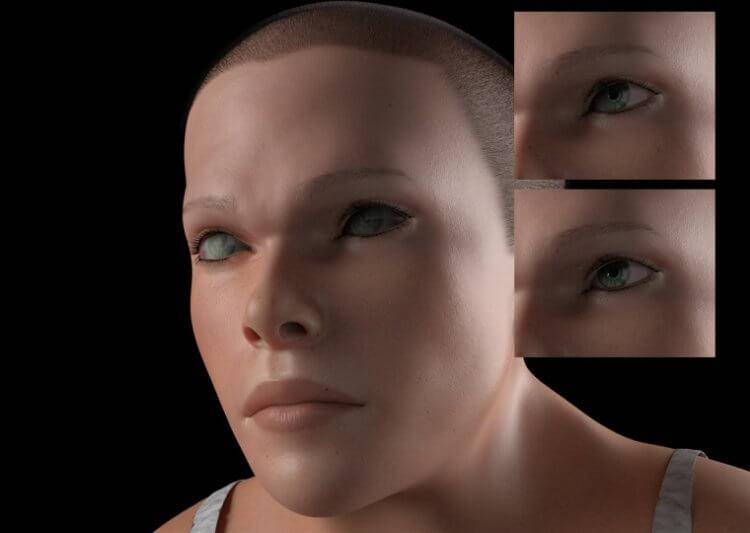
Most people start their days by rolling over and checking their phones but it seems our obsession with tech could have greater consequences than we bargained for.
A new model has highlighted the impact technology could have on human bodies in the future and it's not pleasant.
The model was created by telecommunications company TollFreeForwarding which says it "sourced scientific research and expert opinion" before working with a 3D designer to create a future human whose body has physically changed due to "consistent use of smartphones, laptops, and other tech".
The model, called Mindy, provides a terrifying glimpse at what people could look like in 800 years if our love of technology continues.
According to the company, humans in the year 3000 could have a hunched back, wide neck, clawed hand from texting and a second set of eyelids.
TollFreeForwarding said Mindy was created to help provide a visual of how technology affects the body.
Speaking with TollFreeForwarding Dr Nikola Djordjevic from Med Alert Help said holding cellphones can "cause strain in certain points of contact – causing 'text claw', which is known as cubital tunnel syndrome."
But text claw isn't the only change future humans may have. According to Dr Djordjevic humans could develop a permanently bent elbow - dubbed 'smartphone elbow' - from constantly holding a device.

"Keeping the elbow bent for a long time – most often, while holding your phone – can stretch the nerve behind the elbow and put pressure on it," Dr Djordjevic explained.
And the bad news doesn't stop there, according to the company hours spent looking down at a phone will result in a hunched back and thicker neck.
Dr K. Daniel Riew from the New York-Presbyterian Orch Spine Hospital told TollFreeFowarding looking down at a computer or phone causes the muscles in the back of the neck to contract to hold your head up.
"The more you look down, the harder the muscles have to work to keep your head up. These muscles can get overly tired and sore from looking down at our smartphones and tablets or spending the majority of our working day on computers," Dr Riew explained.

Humans in the future can also expect to have thicker skulls to protect themselves from radiation from smartphones, the company claimed.
"In 2011, the World Health Organization classified smartphone radiation as 'possibly carcinogenic to humans', with a number of long-term studies seeking to establish the full impact. After a 2018 study suggested smartphone radiation may affect memory performance, questions were raised over its impact on other cognitive areas too.
"The effects are believed to be particularly severe on children. Their lesser developed skulls are thinner, absorbing up to three times more radiation than adult brains. Given the impact it could potentially have on us all, Mindy has developed a slightly thicker skull, protecting her from harm," TollFreeForwarding said.

Other grotesque developments humans in the future can expect include a smaller brain and a second set of eyelids to protect from excessive exposure to light.
Kasun Ratnayake from the University of Toledo told TollFreeForwaring radical evolutionary development could see humans develop an "inner eyelid" to protect their eyes.
"Humans may develop a larger inner eyelid to prevent exposure to excessive light, or the lens of the eye may be evolutionarily developed such that it blocks incoming blue light but not other high wavelength lights like green, yellow or red," Ratnayake said.
Mindy isn't the first grim prediction of what our future could look like. In 2019, behaviour futurist William Higham created a horrifying life-sized doll named Emma who represented what office workers might look like in the future.

Emma was created to show what office workers would look like in two decades' time unless "radical changes" to the workplace were made.
She featured a hunched back and red eyes from spending too long staring at a screen, and a protruding stomach a result of her sedentary lifestyle.
"Unless we make radical changes to our working lives, such as moving more, addressing our posture at our desks, taking regular walking breaks or considering improving our work station set up, our offices are going to make us very sick," Higham warned at the time.


